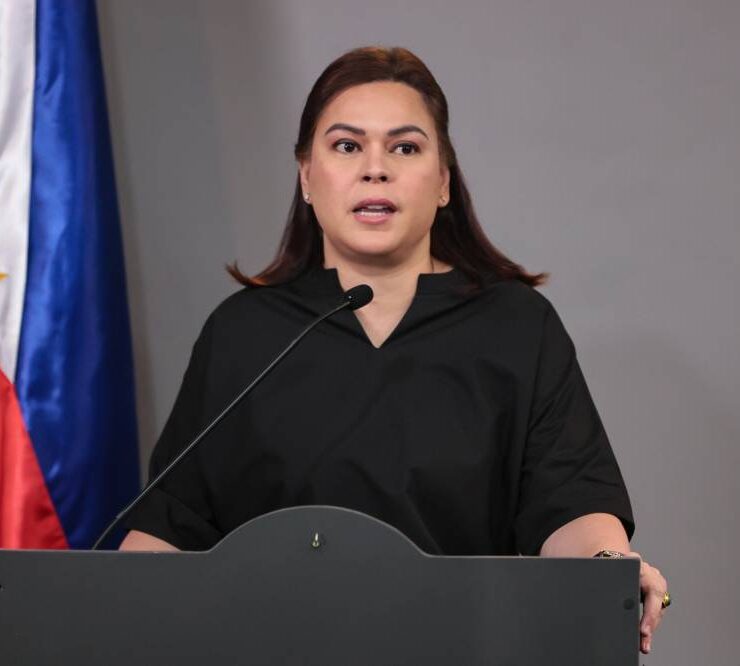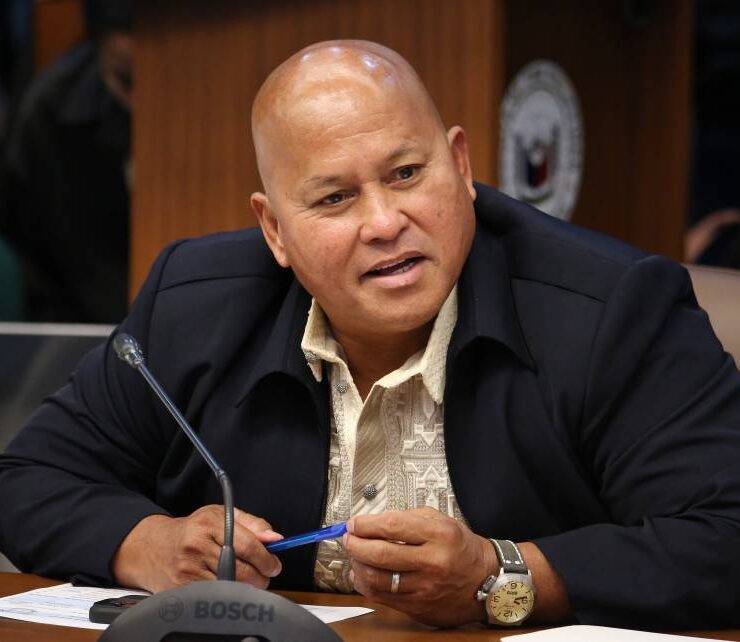SC ruling made accountability process ‘almost impossible’

One of the framers of the 1987 Constitution continued to criticize the Supreme Court’s ruling on the impeachment complaint against Vice President Sara Duterte, warning that the newly imposed requirements would make it “almost impossible to carry out the intended accountability procedure.”
Retired Supreme Court Associate Justice Adolfo Azcuna, in a statement on Wednesday, said the July 25 decision declaring the complaint unconstitutional for violating the one-year ban on successive filings and for infringing on Duterte’s rights to due process undermines the basic principle of accountability.
Azcuna said the earlier, 1935 Constitution required a two-thirds vote of the House of Representatives to impeach a public official and a three-fourths vote in the Senate to convict.
“We in the 1986 Constitutional Commission deliberately made it EASIER to impeach and convict high officials by REDUCING the vote required to impeach in the House to only one-third and the vote in the Senate to convict to only two-third,” he said.
Simply put, the framers of the 1987 Constitution intended to make accountability “easier to enforce,” he said.
Derailing the process
Azcuna noted that the Supreme Court’s new rules impose procedural hurdles never envisioned in the Constitution.
“The new rules of the Supreme Court in its decision, unless reconsidered, would add a plethora of requirements ranging from prior notice and hearing, to attaching the evidence, to requiring proof that the Representatives read and understood the charges and the supporting evidence,” he said.
“All these requirements would only render it ‘almost impossible to carry out the intended accountability procedure,’” he added.
“(I)f allowed to stand, it will to my mind effectively amend—and, God forbid, DERAIL—the Constitution which even the Supreme Court has no power to do,” Azcuna said.
In its ruling, the Supreme Court en banc issued a seven-point guideline to ensure that the constitutional rights of an impeachable official are upheld and that all members of the House are fully informed of the charges before a vote is taken.
It also ruled that the first three complaints were deemed terminated and archived on Feb. 5, the same day the fourth complaint was passed. This became the reckoning date for the one-year bar on successive complaints.
“Therefore,” the Court said, “no new impeachment complaint, if any, may be commenced earlier than February 6, 2026.”
Guard vs greed
In a statement on Wednesday, Duterte thanked her defense team for taking on her impeachment case “even when no one else was willing to stand by me.”
“Thank you to the Petitioners of G.R. No. 278359 for having the conviction to challenge the abuses of the House of Representatives,” she said.
“To those whose voices rang out in dissent against persecution—thank you. Your courage to speak the truth has been a source of strength,” she added.
The Vice President also urged the public to remain steadfast in the face of leaders whose greed threatens to destroy the country.
She said the country “deserves better, and we shall stand tall, strong, and resilient against leaders whose greed will bring down our homeland.”
Retroactive rule
Retired Senior Associate Justice Antonio Carpio also took issue with the Supreme Court retroactively imposing a new requirement that there must be a hearing at the House plenary level before an impeachment complaint can be considered properly initiated.
“How can you comply with a requirement that never existed when you performed the act? There is a rule that when you overturn a doctrine … you have to apply it prospectively because there is a violation of due process if you make it retroactive,” Carpio said at the Kapihan sa Manila Bay forum on Wednesday.
“This was always a practice, and nobody in the world knew that there had to be a hearing at the plenary level. It’s a new requirement. And the Supreme Court imposed this new requirement retroactively,” he added.
Sen. Juan Miguel Zubiri, on the other hand, renewed his warning against defying the SC ruling.
“I respect the views of my colleagues who are pushing for the Senate resolution asking the Supreme Court to effectively reconsider its decision … but I firmly maintain my position that we must comply immediately with the Supreme Court’s decision, as it is clearly stated to be ‘immediately executory’,” he said in a statement on Wednesday.
“That sends the wrong signal to the people and weakens the institutions we are sworn to protect,” he added.
Accountability
For Azcuna, the issue boils down to the accountability of public officials.
He said that while the case may be sui generis (unique), the priority is accountability and not the rigid application of due process standards.
“Someone being impeached does not stand to be deprived of life, nor of liberty, much less of property. So what is the Constitutional basis for insisting on applying due process rules in all phases of impeachment? None,” he said.—WITH REPORTS FROM TINA G. SANTOS AND LUISA CABATO





















